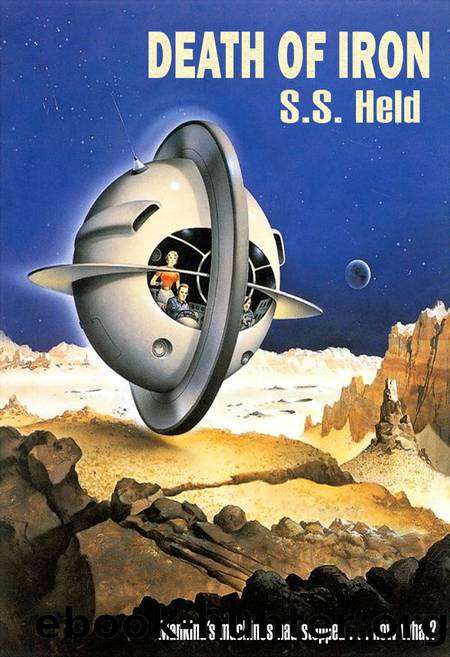Death of Iron by S.S. Held

Author:S.S. Held [Held, S.S.]
Language: eng
Format: epub
Published: 2016-07-09T00:00:00+00:00
XI
The Coming of Revolt
A WHOLE heterogeneous population, attracted by the hope of high wages and in a vague way, by enormous illegitimate profits, had invaded Valenciennes, where the Reconstruction Committee had its headquarters, brought in by the committee which was looking for cheap labor anywhere, without in the least worrying about the effect of these importations on the labor of their own country.
The unemployed and the strikers avoided mixing with this floating labor, and assembled at Raismes.
Super-excited with alcohol, their cries and songs in the streets would wake the shop-keepers, who trembled behind their barricaded windows. The pillage of the factories had become a veritable industry; the more advanced papers even encouraged such robberies. âIt is a fight for the famished people,â they proclaimed, âa reprisal against the profiteers.â
One morning at one of the shops two watchmen were found dead, their throats slit. The chief of police increased the number of gendarmes. Army reservists made nocturnal rounds, but as there were so few of them they could stop neither the pillaging in which half the population was engaged nor the work of destruction the unemployed were doing.
The gendarmes were clumsy and often brutal. When they went by oh horseback through the narrow streets, squeezing the pedestrians against the walls, the women, certain of their immunity, hurled insults at them. Stones flew through the air; a horse, hit, would rear. The man who did it was always lost in the crowd.
These incidents multiplied. In all the coal pits the workers were agitated. Those who had approached too near the sick irons bore on face or arms the scaly traces and empurpled ulcers of the radio-dermic action. These superficial traces were sufficiently painful to spoil the sleep and sap the energy of the sufferers, and on them disorder seemed to produce an intoxication like that of alcohol.
The railroad uniting Valenciennes to Tournai was cut. For a hundred kilometers the trains could not move.
Several businessmen without scruples began to speculate in food. This was the basic reason behind the bloody days of January.
Men struggled desperately with the Blue Evil, and their creative energies seemed to strike an equilibrium with the forces of destruction for a moment. Then the plague began to gain once more. There was a period of dread, the calm which precedes the tempest. Then came a time in which the malady of iron was almost forgotten in the social conflicts which it indirectly provoked.
Paris remained calm. There were several murders of course, and a few stupendous robberies, but these ordinary events were not the general rule. The fall of the Eiffel Tower, which had been constructed in an age of great metallurgical advance, the collapse of the subways, provoked nothing but a little mild conversation. Human sensitiveness became hardened to stories of violent death.
The meetings of the International Iron Cartel had drawn a crowd of foreigners to the capital. The devaluation of money gave a temporary stimulus. to business. Stores, theatres and night clubs joined in a remarkable and unexpected prosperity.
Download
This site does not store any files on its server. We only index and link to content provided by other sites. Please contact the content providers to delete copyright contents if any and email us, we'll remove relevant links or contents immediately.
Machine Learning at Scale with H2O by Gregory Keys | David Whiting(4313)
Never by Ken Follett(3957)
Harry Potter and the Goblet Of Fire by J.K. Rowling(3857)
Fairy Tale by Stephen King(3398)
Unfinished: A Memoir by Priyanka Chopra Jonas(3389)
The Man Who Died Twice by Richard Osman(3079)
Will by Will Smith(2920)
It Starts With Us (It Ends with Us #2) by Colleen Hoover(2367)
Rationality by Steven Pinker(2364)
Can't Hurt Me: Master Your Mind and Defy the Odds - Clean Edition by David Goggins(2341)
The Dark Hours by Michael Connelly(2308)
The Storyteller by Dave Grohl(2236)
Friends, Lovers, and the Big Terrible Thing by Matthew Perry(2230)
The Dawn of Everything: A New History of Humanity by David Graeber & David Wengrow(2208)
The Becoming by Nora Roberts(2202)
The Stranger in the Lifeboat by Mitch Albom(2121)
Cloud Cuckoo Land by Anthony Doerr(2113)
Love on the Brain by Ali Hazelwood(2078)
Einstein: His Life and Universe by Walter Isaacson(2022)
